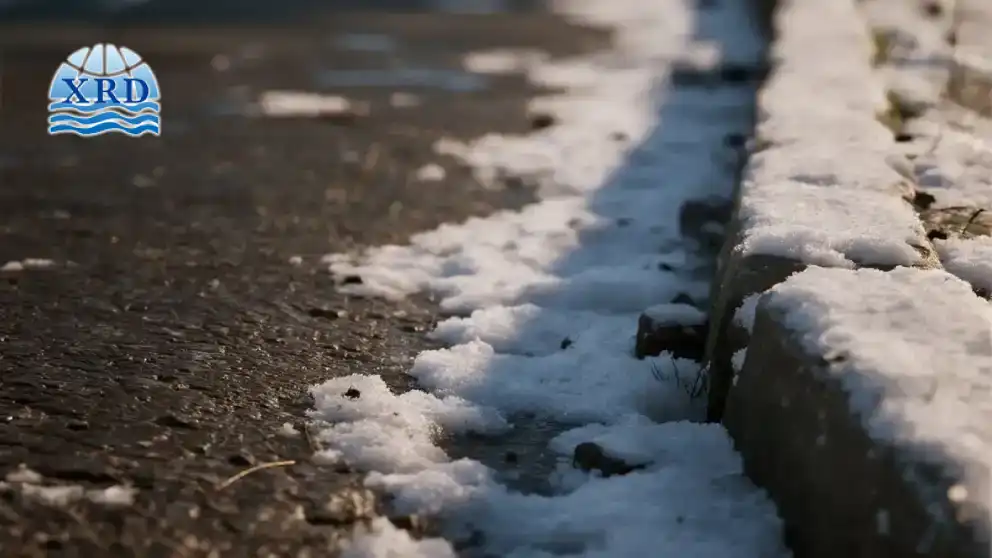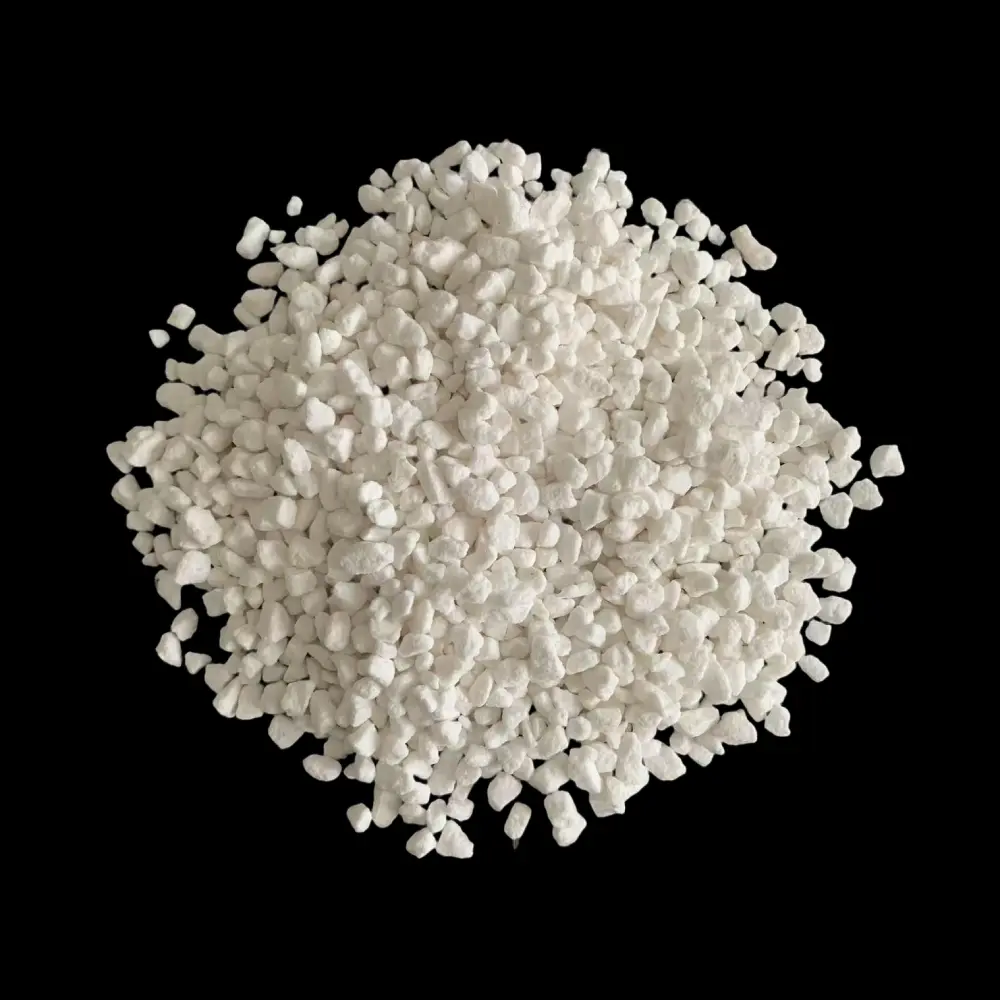When you’re hunting for a winter deicer, the crucial question often boils down to one simple thing: Is it truly safe? With Calcium Magnesium Acetate (CMA), the answer is a resounding yes — when used appropriately. In this article we’ll dive into the science and real-world evidence behind CMA’s reputation as one of the safest ice melt choices for your property, your pets, and the planet.

What is Calcium Magnesium Acetate (CMA)? The Safe and Natural Deicer
Calcium Magnesium Acetate (CMA) is a non-toxic acetate-based deicer produced by combining dolomitic limestone (or dolomitic lime) with acetic acid, resulting in a chemical composition that is chloride-free and far gentler than rock salt. Its chemical formula (roughly C₁₂H₁₈CaMg₂O₁₂) reflects the calcium and magnesium acetate salts used. The absence of sodium chloride (NaCl) or other highly corrosive chlorides is what sets CMA apart as a “safe and natural deicer.”
The single biggest advantage of CMA is its foundational safety profile. It is widely recognized by environmental and transportation agencies as a premier environmentally safe ice melt and corrosion-inhibiting deicer. For example, a one-year study found that CMA at appropriate ratios did no more harm to Portland cement concrete than water alone. Meanwhile, in a watershed-friendly deicing summary from Penn State Extension, CMA is described as “considered the best choice for safely melting ice.”
In contrast, most mainstream deicers are rock salt (sodium chloride), calcium chloride, magnesium chloride or urea-based blends — all of which carry drawbacks such as significant corrosion, vegetation damage and pet risks.
Is CMA Safe for Concrete? Protecting Your Investment
Yes — CMA is exceptionally safe for concrete. Unlike chloride-based salts, CMA does not introduce destructive chloride ions that can enter concrete pores and accelerate freeze-thaw damage or scaling. For instance, laboratory tests showed that CMA in the optimum 3:7 Ca:Mg ratio produced no more concrete harm than water exposure. Meanwhile, manufacturers emphasise that CMA is “the safest deicer for concrete” and can even be used on new concrete cured for at least ~30 days.
From a long-term value perspective, using CMA means fewer costly repairs due to concrete spalling, joint separation or surface scaling — all common issues when using chlorides. For example, the comparison table below illustrates how CMA stacks up vs. typical chloride-based deicers in concrete impact.
| Deicer Type | Effect on Concrete | Corrosive/Scaling Risk |
|---|---|---|
| CMA (Calcium Magnesium Acetate) | Minimal damage; comparable to water alone | Very low |
| Sodium Chloride (Rock Salt) | High potential for pore damage, freeze-thaw scaling | High |
| Calcium Chloride / Magnesium Chloride | Faster melting but can accelerate concrete damage | Moderate to high |
Therefore, for new concrete driveways, high-value hardscapes or historic surfaces where preservation is key, CMA emerges as the recommended choice. The upfront cost may be higher, but when you factor in reduced maintenance and asset life-cycle protection, it becomes a smart investment.
Is CMA Safe for Pets? A Pet Owner's Peace of Mind
For pet owners, CMA stands out as the definitive “pet-safe ice melt” and paw-friendly solution — when used in a pure form. Because it lacks the aggressive chlorides found in rock salt or calcium chloride, it greatly reduces the risk of paw-pad burns, licking toxicity or gastrointestinal distress. Studies show that CMA has mammalian toxicity comparable to common sodium chloride when tested at 1,000 mg/kg/day for 28 days in feeding studies.
That said, there is an important caveat: many products marketed as “pet safe” contain CMA blended with chlorides. In those cases, the chloride component still poses risk to pets and concrete alike. For example, a pet-safety review warns that “adding CMA to an ice-melt formula does not make the entire product safe — not for pets … if other ingredients are chloride-based.”
Hence, always check for 100% chloride‐free formulations if pet safety is your priority.
| Product Composition | Paw/Bite Safety | Vegetation & Water Run-off Risk |
|---|---|---|
| 100% CMA | High — minimal irritation | Very low |
| CMA + Chloride blend | Moderate — risk remains | Moderate to high |
| Pure Chloride (NaCl, CaCl₂, MgCl₂) | Low — higher paw/bite risk | Higher risk to plants, runoff |
In short: when selecting CMA as your ice-melt, use a pure CMA product, apply it as directed, and you can confidently protect your furry family members without sacrificing performance.
Is CMA Safe for Driveways? The Complete Surface Solution
Your driveway’s safety is multi-faceted: surface integrity, pet-friendly traction, and the surrounding landscape all matter. CMA addresses all these concerns. Because we’ve already established its concrete-safe credentials, it’s a strong candidate for driveway ice melt. In addition, the fact that it is pet-, lawn- and vegetation-safe means that the runoff from your driveway won’t kill the grass and plants lining it. According to Penn State, CMA is “less toxic than deicers containing chloride” and thus an environmentally sound choice.
Moreover, from an environmental/vegetation standpoint, CMA actually breaks down into components beneficial to soil — namely calcium, magnesium and acetate — rather than chlorides which accumulate and degrade soil structure. Here’s a comparison table showing how different deicers behave on driveways/surfaces:
| Deicer Type | Driveway Surface Impact | Landscaping Run-off Risk |
|---|---|---|
| 100% CMA | Minimal surface damage, safe for new concrete | Low — biodegradable, soil-friendly |
| Chloride blends (CaCl₂/MgCl₂ + CMA) | Moderate damage still occurs | Moderate — chlorides remain |
| Rock Salt (NaCl) | High damage risk (spalling, scaling) | High — soil and vegetation damage |
So if you’re a conscientious homeowner looking for the driveway ice-melt solution — one that covers your concrete, your pets, and the surrounding environment — CMA fits the bill. While it may cost more upfront than rock salt, the long-term value in preserved surfaces, healthier vegetation and reduced corrosion make it a wise choice.
Conclusion: Choose Safety, Choose CMA
To conclude: the evidence is quite clear. Whether your primary concern is preserving your concrete, safeguarding your pets, protecting your landscaping or minimizing your environmental footprint, Calcium Magnesium Acetate (CMA) is among the safest deicer options available.
Calcium Magnesium Acetate CMA Ice Melt 96% 98% 99% Industry Grade 76123-46-1
- CAS No.: 76123-46-1
- Formula: CaMg₂(CH₃COO)₆
- Purity Level: 94-100% active ingredients
- Packaging: 25kg bags, 1000kg ton bag, or custom packaging
- Payment: L/C, T/T, D/P, D/A, etc.
- Production capacity: 20000 t/y
As a manufacturer and supplier of high-purity CMA, we at XRD Chemical are committed to providing this safe, effective solution to the market. If you are a distributor, municipality or commercial buyer looking to buy Calcium Magnesium Acetate in bulk and seeking a competitive low-price CMA for large orders, we can help. Our large-scale production ensures consistent supply and fast delivery. Contact us today for a competitive quote and make the safe switch to CMA for your winter management needs.






